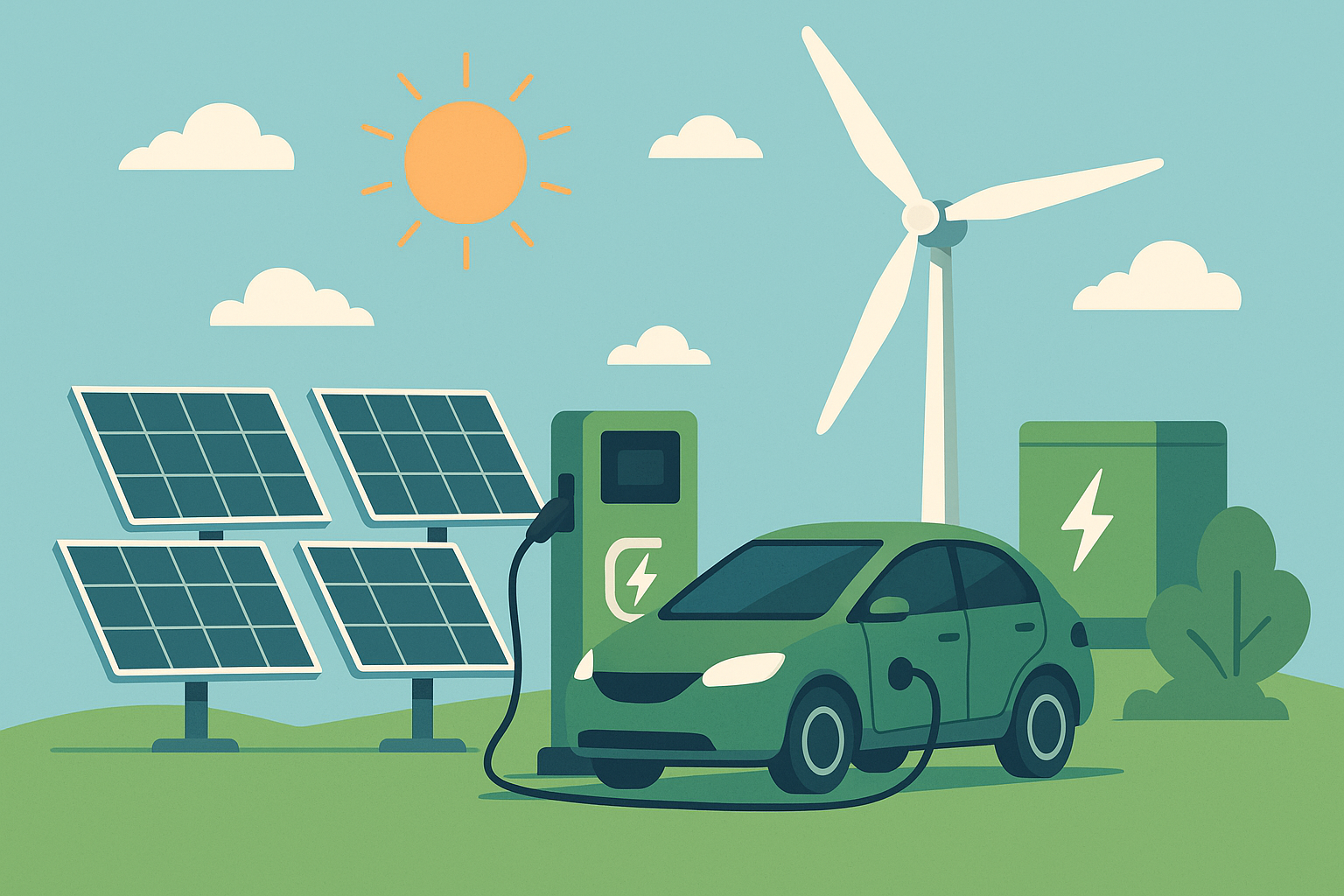Renewable Energy

What is Renewable Energy?
Renewable energy refers to energy sourced from natural resources that are replenished on a human timescale, such as solar, wind, geothermal, and hydropower. In the context of electric vehicles (EVs), renewable energy plays a crucial role in powering EV Charging stations and reducing the carbon footprint of electric mobility. By using renewable energy sources for charging, EV owners and operators can significantly decrease their reliance on fossil fuels and contribute to a sustainable future.
Why Renewable Energy Matters
The integration of renewable energy in EV Charging infrastructure is essential for achieving a sustainable and carbon-free transportation system. While electric vehicles themselves produce zero emissions, the electricity used to charge them can come from fossil fuels, unless renewable energy is integrated. By sourcing energy from solar, wind, and other renewable sources, EV owners and fleet operators can ensure that the entire lifecycle of EV usage is as clean as possible, contributing to global decarbonization goals.
How it Works
Renewable energy sources such as solar and wind generate electricity, which can then be used to power EV Charging stations. These charging stations either use grid power, which may be partially supplied by renewable energy, or have dedicated on-site renewable energy systems (such as solar panels or wind turbines) to directly power the chargers. Energy storage systems like batteries can also be used to store excess renewable energy generated during low-demand periods for use during peak charging times.
Key Technologies / Features
- Solar Panels: Solar energy systems installed at charging stations to capture sunlight and convert it into electricity.
- Wind Turbines: Wind energy systems used to generate electricity that can be used for EV Charging.
- Energy Storage Systems: Batteries that store excess renewable energy generated during the day for use at night or during peak hours.
- Smart Grid Integration: Smart grids facilitate the use of renewable energy in EV Charging systems, ensuring optimal energy distribution based on real-time demand and supply.
Applications
- Solar-Powered Charging Stations: Charging points that are entirely or partially powered by solar panels, reducing grid dependency.
- Wind-Powered Charging: EV Charging stations integrated with wind turbines to generate clean energy for vehicle charging.
- Energy Storage: Using battery storage systems to store renewable energy and use it during high-demand charging periods.
- Hybrid Charging Stations: Charging infrastructure that integrates solar, wind, and grid energy to provide flexible, renewable-powered solutions for EV owners.
Benefits
Using renewable energy for EV Charging reduces the environmental impact of electric vehicles, making them truly sustainable. It lowers the cost of charging, especially in areas with high renewable energy availability, and provides energy independence from the grid. Furthermore, renewable-powered charging stations support the use of clean energy, reduce greenhouse gas emissions, and promote a sustainable energy future.
Use Cases
Solar-powered EV charging stations have been implemented in countries like India, where solar energy is abundant. In the U.S., several cities have adopted renewable-powered charging stations as part of their clean energy initiatives. Tesla’s Supercharger network also integrates solar panels and energy storage systems in some locations to provide sustainable charging solutions.
📌 Callout Box:
Renewable energy is key to achieving fully sustainable electric mobility by powering EV Charging stations with clean, abundant energy sources.




